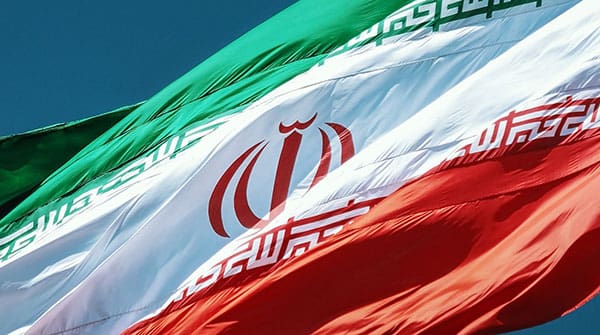 American gasoline prices have crossed the unprecedented US$5-a-gallon mark. American Automobile Association data shows prices at the pump are up roughly 60 percent from a year ago. And prices in Canada are already more than $2 a litre.
American gasoline prices have crossed the unprecedented US$5-a-gallon mark. American Automobile Association data shows prices at the pump are up roughly 60 percent from a year ago. And prices in Canada are already more than $2 a litre.
We are seeing new record prices around the world with each passing week. And no respite is in sight.
The crisis in Ukraine has given the global crude oil equation another disastrous twist. The United States has been leading the campaign against Russia and President Vladimir Putin in the wake of Russia’s invasion of Ukraine. Energy has been a significant component of this effort to generate enough pain for Putin to be compelled to withdraw.
But the effort has also generated almost unbearable pain for people around the globe. Trying to constrict the flow of petrodollars to Russia has backfired, and the U.S. faces increasing criticism.
What can U.S. President Joe Biden do?
The best bet remains to bring sanctioned Iranian oil back to the market. Iran has already raised oil exports this year. An Al Jazeera report citing the Iranian petroleum ministry data, carried by the state-run IRNA news agency, shows Iran is exporting more than one million barrels of crude oil and gas condensate a day. Iran sold 40 percent more crude, oil derivatives, natural gas and gas condensate in the first two months of the current Iranian calendar year, which ended on May 21, compared to the corresponding period last year.
| RELATED CONTENT |
| Canada replaces OPEC as lead oil importer to U.S. Gulf Coast By Deborah Jaremko |
| Policy-makers need to focus on Canada’s commodity strengths By Jock Finlayson |
| WEBINAR: Emerging technologies that address climate change With Eddy Isaacs and Mark Summers |
Meanwhile, a new nuclear deal between the West and Iran could lead to an additional 500,000 to one million barrels per day coming to the international markets. That’s enough to dampen prices, Bloomberg reported, quoting energy analysts. And industry analyst Kpler says Iran has up to 40 million barrels of oil sitting in tankers in Asia looking for buyers. Iran also has a considerable volume in storage. Once the sanctions are lifted, that stockpile could also be available for sale.
The United States understands the dynamics. And even though talks on an Iran nuclear deal seem stalled, there are hints the U.S. may allow more Iranian crude into the markets.
“Uncle Sam might just allow a little bit more of that oil to flow,” Mike Muller, at the crude oil trading giant Vitol Group, said on a podcast produced by Dubai-based Gulf Intelligence. “If the midterms [elections in the U.S.] are dominated by the need to get gas prices lower in America, turning a somewhat greater blind eye to the sanctioned barrels flowing out is probably something you might expect to see. U.S. intervention in these flows has always been pretty sparse.”
Last month, apparently under pressure to increase global oil supplies, the U.S. was reportedly also moving to ease a few economic sanctions against Venezuela. That country has the world’s largest oil reserves. The limited changes would allow Chevron Corp. to negotiate its licence with the Venezuelan state-owned oil company, PDVSA, two senior U.S. government officials reportedly told The Associated Press.
Additionally, Carlos Erik Malpica-Flores – a former high-ranking PDVSA official and nephew of Venezuela’s first lady – was removed from a list of sanctioned individuals.
California-based Chevron is the last major U.S. oil company to do business in Venezuela, where it first invested in the 1920s. Its four joint ventures with PDVSA produced about 200,000 barrels a day in 2019. But the U.S. government in 2020 ordered it to wind down production. Since then, it has only been allowed to carry out essential work on oil wells to preserve its assets and employment levels in Venezuela.
The overheated energy markets also seem to have forced Biden to rethink his Saudi strategy. He finally appears to be preparing to visit Saudi Arabia and meet Prince Mohammad bin Salman, who Biden has previously refrained from contacting directly.
Even before any meeting, a shift seems to be occurring. The Saudi-led OPEC+ (Organization of Petroleum Exporting Countries) has agreed to increase output over the next two months and again in September.
Could all this movement yield the desired results and cool down the energy markets?
Likely not.
Once China fully curbs its strict COVID-19 policies, oil demand will soar even higher. That means oil prices are still nowhere near their peak, United Arab Emirates Energy Minister Suhail Al-Mazrouei said on Wednesday.
So more needs to be done. Removing Russia from the global energy equation is proving to be extremely difficult.
Toronto-based Rashid Husain Syed is a respected energy and political analyst. The Middle East is his area of focus. As well as writing for major local and global newspapers, Rashid is also a regular speaker at major international conferences. He has provided his perspective on global energy issues to the Department of Energy in Washington and the International Energy Agency in Paris. For interview requests, click here.
The opinions expressed by our columnists and contributors are theirs alone and do not inherently or expressly reflect the views of our publication.
© Troy Media
Troy Media is an editorial content provider to media outlets and its own hosted community news outlets across Canada.


